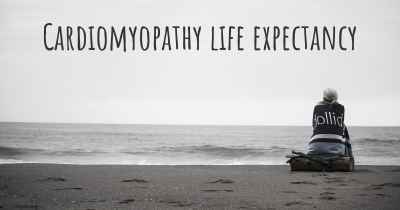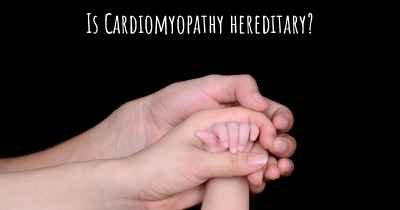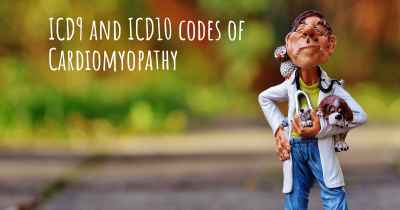Living with Cardiomyopathy. How to live with Cardiomyopathy?
Can you be happy living with Cardiomyopathy? What do you have to do to be happy with Cardiomyopathy? Living with Cardiomyopathy can be difficult, but you have to fight to try to be happy. Have a look at things that other people have done to be happy with Cardiomyopathy

Living with Cardiomyopathy
Cardiomyopathy is a chronic condition that affects the heart muscle, making it harder for the heart to pump blood to the rest of the body. While living with cardiomyopathy can present challenges, there are several strategies and lifestyle changes that can help individuals manage their condition and improve their quality of life.
1. Medical Management
Proper medical management is crucial for individuals with cardiomyopathy. It is essential to work closely with a healthcare team, including cardiologists and other specialists, to develop a personalized treatment plan. This may involve medications to manage symptoms, control blood pressure, and prevent complications. Regular follow-up appointments and diagnostic tests, such as echocardiograms, can help monitor the progression of the condition and adjust treatment as needed.
2. Lifestyle Modifications
Diet: Adopting a heart-healthy diet is important for managing cardiomyopathy. This includes consuming a balanced diet rich in fruits, vegetables, whole grains, lean proteins, and healthy fats. Limiting sodium intake is particularly crucial to prevent fluid retention and reduce strain on the heart.
Exercise: Regular physical activity, as recommended by the healthcare team, can help strengthen the heart muscle and improve overall cardiovascular health. However, it is important to follow the exercise plan provided by the healthcare team, as excessive strain can be harmful.
Smoking and Alcohol: It is essential to quit smoking and limit alcohol consumption, as both can worsen cardiomyopathy and increase the risk of complications.
Stress Management: Chronic stress can negatively impact heart health. Engaging in stress-reducing activities such as meditation, yoga, or hobbies can help manage stress levels and promote overall well-being.
3. Emotional Support
Living with cardiomyopathy can be emotionally challenging. It is important to seek emotional support from loved ones, friends, or support groups. Sharing experiences and concerns with others who understand the condition can provide comfort and valuable insights. Additionally, counseling or therapy may be beneficial in managing anxiety or depression related to the condition.
4. Monitoring Symptoms
Being aware of any changes in symptoms is crucial for individuals with cardiomyopathy. Shortness of breath, fatigue, chest pain, irregular heartbeat, and swelling in the legs or ankles are common symptoms that should be promptly reported to the healthcare team. Regularly monitoring blood pressure and weight at home, as advised by the healthcare team, can also help detect any worsening of the condition.
5. Supportive Devices and Treatments
In some cases, individuals with cardiomyopathy may require supportive devices or treatments to manage their condition. These may include:
- Implantable Cardioverter Defibrillator (ICD): This device helps regulate abnormal heart rhythms and can deliver an electric shock if a life-threatening rhythm is detected.
- Ventricular Assist Devices (VAD): VADs are mechanical pumps that help the heart pump blood in individuals with severe heart failure.
- Heart Transplant: In advanced cases, a heart transplant may be necessary when other treatments are no longer effective.
6. Regular Check-ups and Vaccinations
Regular check-ups with the healthcare team are essential to monitor the progression of cardiomyopathy and adjust treatment accordingly. Additionally, staying up to date with vaccinations, including the flu and pneumonia vaccines, is crucial to prevent infections that can further strain the heart.
Living with cardiomyopathy requires a proactive approach to managing the condition. By following a comprehensive treatment plan, adopting a healthy lifestyle, seeking emotional support, and staying vigilant about symptoms, individuals can lead fulfilling lives while effectively managing their cardiomyopathy.
Posted Mar 21, 2017 by Darren 1000
Posted Mar 21, 2017 by Michelle 1000
Posted Mar 22, 2017 by Sian 1050
Changes within your own body,
Daily routine changes,
A lifestyle change, and change of the new restrictions in your life.
Posted Mar 22, 2017 by Kristine 1000
Enjoy every day of your life because no one, with or without cardiomyopathy, is guaranteed another day.
Posted Nov 15, 2021 by Laura 1550








